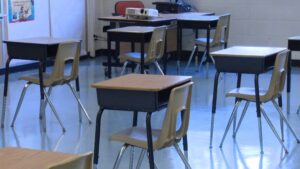School, a year of stress and poor study
 It’s time for analysis. With the 2020-2021 school year coming to an end as Ontario students are taking online classes, teachers are examining a year characterized for uncertainties, problems, and guidelines caused by the Covid-19 pandemic.
It’s time for analysis. With the 2020-2021 school year coming to an end as Ontario students are taking online classes, teachers are examining a year characterized for uncertainties, problems, and guidelines caused by the Covid-19 pandemic.
Distance learning alternating with in-presence lessons, open schools and closed schools for the spread of infections, self-isolation of teachers and children: it has certainly not been a year of rest and in just over a month it will be officially declared concluded. But the question that as a woodworm continues to find a place in the minds of teachers and parents is only one: what long-term impacts will this unpredictable year of anxiety – manifest or latent – have on learning for the current pandemic?
CBC News then sent a questionnaire to over 50,000 teachers in nearly 200 school districts in eight provinces. The goal was to find out how educators and students are adapting to all the changes caused by the pandemic, from mask-wearing and other public health rules to condensed high school hours and sudden shifts to virtual learning. Almost 9,500 – including teachers, support staff, principals and other primary and secondary school workers – responded.
What has emerged, from an academic point of view, is certainly not encouraging, although it is certainly not a surprise. Almost three quarters of teachers said they were behind schedule. About 55% said fewer students will meet learning goals this year than in a year without a pandemic.
And about 70% of teachers believe that some students will not be able to catch up academically. About 90% of teachers said they still believe that the challenges of this school year dominated by Covid-19 will have a psychological impact on some students.
Teachers will also pay the price for such a difficult period, according to principals: more than 80% of principals and deputy principals who answered the questionnaire said they were very concerned about the “physical and mental collapse caused by stress”.
The questionnaire responses came as no surprise to child psychologist Todd Cunningham, who said they “are in line with what I’m seeing in the clinical environment.” “Everyone will have less knowledge of the content… everyone will have to recognize that students will need to review key concepts to ensure they have that basic knowledge,” said Cunningham, who is also an associate professor at the University of Toronto.
The psychologist is particularly concerned about the impact that a rambling year like this will have on academic skills such as reading and understanding vocabulary, expressing ideas in writing, and using math to solve problems. “These skills require continuous practice to develop,” he said. That continuity that has been lacking this year.


